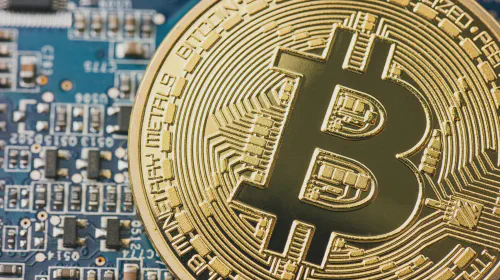How Does Edge Computing Blockchain Revolutionize Data Management?
Salomon Kisters
Jul 11, 2023This post may contain affiliate links. If you use these links to buy something we may earn a commission. Thanks!
One groundbreaking development that has caught our attention is the fusion of edge computing with blockchain technology.
This powerful combination has the potential to revolutionize data management as we know it.
In this blog post, we will explore how edge computing blockchain enhances data management, ensures security, increases efficiency, unlocks new opportunities, and enables truly decentralized and autonomous systems.
Enhancing Data Management
Traditionally, centralized data management systems have been plagued by various challenges such as single points of failure, limited scalability, and concerns over data privacy. With edge computing blockchain, these limitations are overcome by distributing data processing and storage capabilities to edge devices, while ensuring the integrity and security through blockchain technology.
By allowing data processing and storage to occur closer to the source, edge computing blockchain significantly reduces latency and ensures faster data processing. This is particularly crucial in applications where real-time data analysis and decision making is paramount, such as autonomous vehicles, smart cities, and industrial automation.
Ensuring Security
Data security is a paramount concern for any organization. With edge computing blockchain, data security is taken to new heights. The decentralized nature of blockchain ensures that data is recorded in a tamper-proof and immutable manner, making it virtually impossible for malicious actors to alter the data without being detected. This level of security provides a high degree of trust in the integrity of the data, instilling confidence in both businesses and consumers.
Moreover, the distributed nature of edge computing blockchain further enhances security by eliminating single points of failure. With data stored and processed across multiple edge devices, the system becomes resilient to potential attacks or hardware failures, ensuring continuous availability of data and services.
Increasing Efficiency
Edge computing blockchain brings unprecedented efficiency by reducing the need for data transfer to centralized cloud servers. By processing data closer to the source, edge devices can quickly analyze and respond to data in real-time, without the need to rely on a remote server. This reduces network congestion, minimizes latency, and optimizes resource utilization.
In addition, edge computing blockchain minimizes the bandwidth requirements for data transfer, leading to significant cost savings. Rather than constantly transferring large datasets to centralized servers, only the essential data or summarized information is transmitted, making more efficient use of limited network resources.
Unlocking New Opportunities
The fusion of edge computing and blockchain technology unlocks new opportunities that were previously unfeasible. By processing data at the edge, organizations can harness the power of real-time analytics and automation, enabling a whole new realm of applications and services.
For example, in the healthcare sector, edge computing blockchain can enable wearable medical devices to continuously monitor patient vital signs and securely transmit the data for real-time analysis. This opens up possibilities for remote patient monitoring, early detection of medical emergencies, and personalized healthcare interventions.
Likewise, in the energy sector, edge computing blockchain can facilitate the integration of renewable energy sources into the grid. By enabling distributed energy management and peer-to-peer energy trading, edge computing blockchain allows individuals and businesses to participate actively in the energy market and promotes a more sustainable and resilient grid.
Enabling Decentralized and Autonomous Systems
Edge computing blockchain paves the way for truly decentralized and autonomous systems. With data processing and storage taking place at the edge, decisions can be made locally without relying on centralized servers or authorities. This not only reduces latency but also increases system resilience and enables autonomous decision-making in real-time.
For instance, in autonomous vehicles, edge computing blockchain allows vehicles to make critical decisions based on local data and consensus algorithms without the need for constant communication with a centralized server. This ensures faster response times and greater autonomy, leading to safer and more efficient transportation systems.
Conclusion
In conclusion, the fusion of edge computing and blockchain technology has immense potential to revolutionize data management. By enhancing data management, ensuring security, increasing efficiency, unlocking new opportunities, and enabling decentralized and autonomous systems, edge computing blockchain is set to shape the future of various industries.
At OriginStamp, we are excited to be at the forefront of this transformative technology, continuously exploring innovative solutions that leverage the power of edge computing blockchain to drive digital transformation and improve our clients’ data management strategies.
Stay tuned for more updates and developments in this exciting field!
Stay informed with the latest insights in Crypto, Blockchain, and Cyber-Security! Subscribe to our newsletter now to receive exclusive updates, expert analyses, and current developments directly to your inbox. Don't miss the opportunity to expand your knowledge and stay up-to-date.
Love what you're reading? Subscribe for top stories in Crypto, Blockchain, and Cyber-Security. Stay informed with exclusive updates.
Please note that the Content may have been generated with the Help of AI. The editorial content of OriginStamp AG does not constitute a recommendation for investment or purchase advice. In principle, an investment can also lead to a total loss. Therefore, please seek advice before making an investment decision.

Is the Bitcoin Dream Dead in 2023?
Bitcoin has been around since 2009, but it has still to witness mainstream adoption. Despite the massive success of Bitcoin in the crypto space, there are still those who claim that it's all hype and nothing more than a fad.

Cryptojacking - A Growing Cyber Threat
Learn about the rising issue of cryptojacking, a new form of cyber attack that involves hijacking people's computer resources to mine digital currencies without their knowledge. Discover how to protect yourself and your computer from this growing threat.

Block Rewards vs. Transaction Fees - Why We Need Both
Block rewards and transaction fees are two important incentives for miners. But why do we need both?
Protect your documents
Your gateway to unforgeable data. Imprint the authenticity of your information with our blockchain timestamp